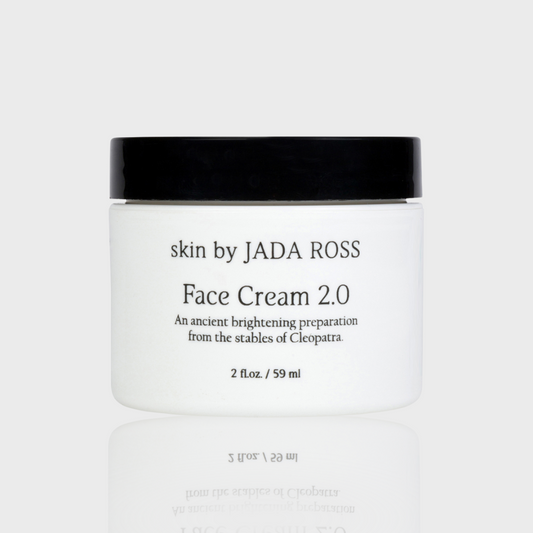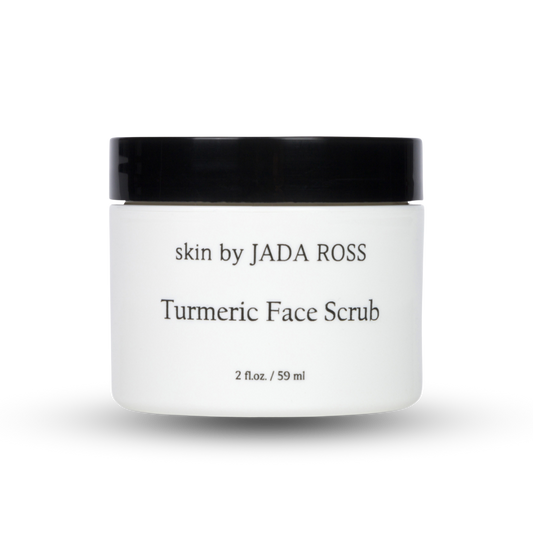How to Create a Skincare Routine for Aging Skin
Aging is an inevitable part of life, and while we cannot prevent it, we can undoubtedly manage its effects on our skin. Our skin undergoes several changes as we age, including decreased collagen production, slower skin regeneration, and diminished elasticity. These changes manifest in visible signs such as fine lines, wrinkles, dryness, and uneven pigmentation. However, with the proper skincare routine, it is possible to combat these effects and maintain healthy, glowing skin well into your later years.
For individuals in their 30s and beyond, it becomes increasingly crucial to adjust their skincare regimens to address the challenges posed by aging.
In this blog, we will provide a comprehensive, step-by-step best skincare routine for aging skin. We'll introduce key ingredients that promote skin health, suggest targeted products, and share tips to help improve your skin's texture, hydration, and overall appearance.

Understanding Aging Skin
The Natural Aging Process: As we age, the underlying structures of our skin begin to change. Collagen and elastin production, responsible for maintaining skin firmness and elasticity, naturally declines with age. This reduction leads to sagging, wrinkles, and fine lines. Additionally, skin regeneration slows down, resulting in a buildup of dead skin cells on the surface, causing the skin to look dull and uneven.
The epidermis (outer layer of the skin) thins over time, making the skin more sensitive and prone to damage. These changes contribute to the visible signs of aging that most people experience as they age.
Common Skin Concerns for Aging Skin: Aging skin conditions is characterized by several key issues, each of which can be addressed through a well-designed skincare routine. These include:
- Fine Lines and Wrinkles: As collagen production decreases, the skin loses its ability to spring back, forming fine lines and deeper wrinkles.
- Loss of Firmness and Elasticity: The breakdown of elastin causes the skin to lose its youthful plumpness, resulting in sagging and a lack of definition around the jawline and neck.
- Dryness and Dehydration: Aging skin produces less sebum (natural skin oils), leading to dryness and a dull appearance.
- Age Spots and Pigmentation: Over time, sun exposure and the aging process cause melanin production to become uneven, leading to pigmentation issues, such as age spots.
- Dullness and Uneven Skin Tone: Reduced skin cell turnover leads to an accumulation of dead skin cells, making the complexion look tired and lackluster.
How a Skincare Routine Can Help: A properly designed skincare routine can address these aging skin problems in several ways:
- Hydration: Hydrating ingredients like hyaluronic acid and ceramides help restore moisture, plump the skin, and reduce the appearance of fine lines.
- Collagen Boosting: Active ingredients such as retinoids and peptides stimulate collagen production, helping to firm and tighten the skin.
- Protection: Antioxidants like vitamins C and E, as well as daily sunscreen, protect the skin from environmental damage, preventing further aging signs.
- Exfoliation: Regular exfoliation helps to accelerate skin turnover, revealing fresher, more even-toned skin underneath.

Key Ingredients for Aging Skin
When creating a skincare routine for aging skin, it's essential to include products with ingredients specifically designed to target the signs of aging. Below are some of the most effective ingredients to look for when shopping for skincare products:
Antioxidants:
- Vitamin C: Vitamin C is one of the most well-known antioxidants, renowned for its ability to brighten the skin and reduce the appearance of age spots. It also helps boost collagen production, key to maintaining skin firmness.
- Vitamin E: Vitamin E is another potent antioxidant that helps protect the skin from free radicals, which can cause premature aging. It also aids in moisturizing the skin, keeping it soft and hydrated.
Retinoids (Retinol): Retinol and its more potent forms, such as tretinoin, are considered the gold standard for anti-aging. Retinoids promote cell turnover, reduce fine lines and wrinkles, and improve skin texture. They also stimulate collagen production, which is essential for firm skin.
Peptides: Peptides are short chains of amino acids that promote collagen and elastin synthesis. By encouraging the skin to produce more structural proteins, peptides help improve skin elasticity and firmness, making them a critical ingredient for aging skin.
Hyaluronic Acid: Hyaluronic acid is a humectant that attracts and retains water in the skin. It helps deeply hydrate the skin, making it appear plump, smooth, and youthful. By providing moisture from within, it also helps reduce the visibility of fine lines.
Sunscreen (SPF): Sunscreen is arguably the most essential product in any skincare routine, but it's especially crucial for aging skin. UV rays accelerate skin aging by breaking down collagen and elastin. Always apply sunscreen with at least SPF 30 daily to protect your skin from further damage, even on cloudy days.
Niacinamide: Niacinamide, also known as Vitamin B3, helps reduce the appearance of pores, improve skin tone, and decrease the production of sebum. It's also known for diminishing fine lines and increasing skin elasticity, making it a great addition to any anti-aging routine.

Building a Skincare Routine for Aging Skin
Now that we understand the changes that aging skin undergoes and the ingredients that help mitigate those changes let's dive into the steps involved in creating an effective skincare routine for aging skin.
Step 1 - Cleansing: Cleansing your skin is the first step in any skincare routine. When selecting a cleanser for aging skin, opt for a hydrating, gentle formula that won't strip the skin of its natural oils. Avoid harsh, foaming cleansers, which can contribute to dryness and irritation.
Step 2 - Toning: Toners are often overlooked in many skincare routines, but they play a key role in maintaining the skin's moisture balance. A hydrating toner can help balance the skin's pH and prepare it to absorb the ingredients in the following steps.
Step 3 - Exfoliating (1-2 Times a Week): Exfoliation is essential for aging skin as it helps to remove dead skin cells, revealing fresher and smoother skin. While physical exfoliants can be too abrasive for aging skin, chemical exfoliants, such as AHAs and BHAs, are much gentler and more effective.
Step 4 - Treatment/Serums: Serums are concentrated treatments that address specific skin concerns. For aging skin, look for serums that contain ingredients like retinol, vitamin C, or peptides to combat fine lines, wrinkles, and dullness.
Step 5 - Moisturizing: Moisturizing is crucial for aging skin. Look for rich, nourishing moisturizers that help restore hydration and lock in moisture. Ingredients like hyaluronic acid and ceramides are especially beneficial for keeping skin hydrated and plump.
Step 6 - Sunscreen (Daily): Sunscreen protects aging skin. UV rays accelerate aging, causing wrinkles, age spots, and sagging. Apply sunscreen daily to shield your skin from further damage regardless of the weather.
Additional Skin Care Tips for Aging Skin
Stay Hydrated: Drinking water throughout the day helps maintain skin hydration, which is key for keeping skin plump and radiant.
Healthy Diet: Incorporating antioxidant-rich foods, such as berries, leafy greens, and omega-3 fatty acids, into your diet can support skin health from within.
Regular Sleep: Quality sleep is essential for skin regeneration and repair. Aim for 7-9 hours of sleep per night to allow your skin to rejuvenate.
Gentle Skin Care: Avoid harsh products and aggressive scrubbing, as these can damage the skin and accelerate aging. Be gentle and mindful when caring for your skin.
Regular Skin Checkups: Regular visits to a dermatologist can help you catch potential skin issues early and ensure that your skincare routine remains effective.

Best Skincare Products for Aging Skin
Cleansers: Look for gentle hydrating cleansers like the Perfect Cleanse with AHA 7% by skin by Jada Ross, which provides exfoliating and hydrating benefits.
Exfoliators: Chemical exfoliants like The Ordinary Glycolic Acid 7% Toning Solution are ideal for aging skin.
Serums/Treatments: For brightening and anti-aging benefits, use vitamin C serums like skin by Jada Ross’ Vitamin C Serum.
Retinol: Retinol products like The Ordinary Retinol 0.5% in Squalane are perfect for improving skin texture and reducing signs of aging.
Hyaluronic Acid: The Hyaluronic Moisture Serum from Skin by Jada Ross provides deep hydration and plumps the skin.
Moisturizers: Maxi Hyaluronic Moisture Cream offers intense hydration and helps improve skin elasticity.
Sunscreen: Opt for broad-spectrum sunscreens like EltaMD UV Clear SPF 46 for daily protection.
Sample Skincare Routine for Aging Skin
Morning Routine:
- Cleanser
- Toner
- Serum (Vitamin C or anti-aging serum)
- Moisturizer
- Sunscreen (SPF 30 or higher)
Evening Routine:
- Cleanser
- Exfoliate (2-3 times a week)
- Serum (Retinol or Peptide-based serum)
- Moisturizer
- Night cream (optional)
Common Mistakes to Avoid in Your Skincare Routine
Over-exfoliating: Exfoliating too often can irritate aging skin, leading to dryness and sensitivity. Stick to 1-2 times a week.
Skipping Sunscreen: Not applying sunscreen daily can accelerate aging and cause sun damage.
Using Harsh Products: Harsh, stripping products can damage aging skin, leading to increased dryness and irritation.
Ignoring Night Care: Overnight is when the skin regenerates. Don't skip your nighttime skincare routine.

Maintaining youthful and glowing skin is a lifelong journey, but with the right tools and knowledge, you can effectively address the signs of aging. Following the skin care routine outlined in this guide, you can target fine lines, wrinkles, loss of elasticity, and dryness while keeping your skin hydrated and protected from environmental damage. With consistency, the right products, and patience, you'll see noticeable improvements in your skin's texture, hydration, and overall appearance.
Start your skincare journey today by incorporating these steps into your daily routine. Please share your experience and tips with others, and let's continue to support each other in achieving healthier, more youthful skin.






Leave a comment
Please note, comments need to be approved before they are published.